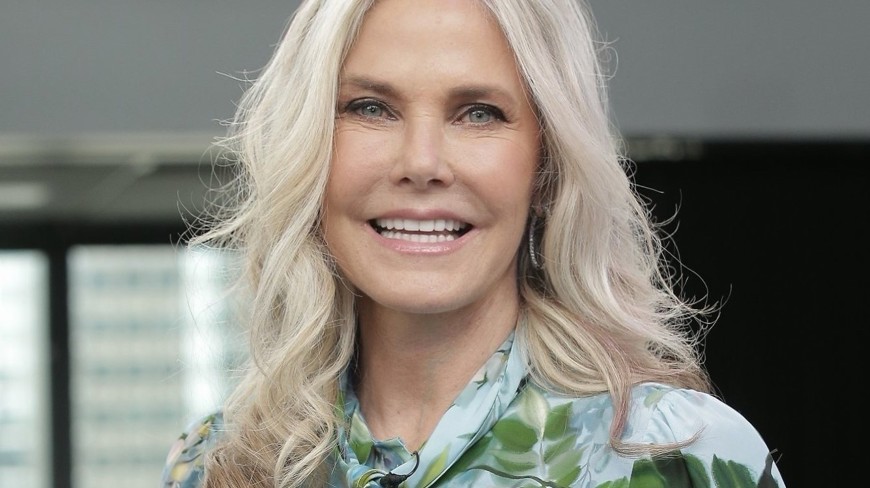How to Align Personal Growth with Business Success
September 8, 2025
Published in:
Your business cannot grow unless you do, too: Entrepreneurs share how they have scaled themselves up along with their companies.

Photo by: Entrepreneurs' Organization
Entrepreneurship is as much about personal evolution as it is about business growth. Every founder who scales a company must also scale themselves — refining their habits, mindset, and leadership practices. The two journeys are inseparable. As Barry Raber, a longtime EO member through EO Portland, reminds us, “There is a robust correlation between success and having the ability to say ‘no’ to opportunities that do not serve you.”
So how do entrepreneurs align their own growth with the success of their companies? Insights from four seasoned entrepreneurs and thought leaders reveal a roadmap: mastering the art of saying no, learning to delegate effectively, embracing change, and managing energy with discipline.
The Power of Saying “No”
Barry’s perspective is both simple and profound: entrepreneurs succeed not by saying “yes” to everything, but by being intentional about what they will not do.
Early-stage founders often fall into the trap of chasing every opportunity, but as Barry notes, “resources are finite and can easily be wasted. Saying no is critical because it empowers you to focus your limited resources — people, time, money — on the core elements that drive success best.”
He advocates for creating a “Won’t Do List,” which is a deliberate inventory of the clients, business practices, and opportunities you will reject. This practice not only conserves energy but also sharpens differentiation. Think of companies like Trader Joe’s or Costco: Their success stems from what they refuse to carry, not just what they offer.
For entrepreneurs, the takeaway is clear: personal growth means learning to set boundaries. When you define what is off-limits, you align your business focus with your personal values, making your growth and your company’s trajectory inseparable.

Aligning Personal Growth and Business Success
- Learn how and when to say “no”
- Master and leverage delegation
- Embrace change – intentionally
- Save your energy for high ROI tasks
Delegation as a Growth Lever
Adi Klevit, also a member of EO through EO Portland and co-founder of Business Success Consulting Group, cites lack of communication as the biggest obstacle to delegation: “Your delegatee cannot read your mind and figure out how you perform a task,” she writes for Inc. Delegation only works when leaders build systems that include documented processes, accountability structures, and clear expectations.
The real challenge for entrepreneurs is not just operational; it is personal. Many struggle to let go, believing no one else can deliver the same quality. Adi points out that often this reluctance masks deeper issues: fear of losing control, attachment to tasks we enjoy, or a lack of trust. Yet, delegation is essential for scaling. “One person with a specific skill set —no matter how broad — can only do so much,” she emphasizes
For entrepreneurs, personal growth lies in relinquishing control and embracing leadership over ownership of every detail. By learning to delegate, you create space for innovation, strategy, and renewal, which fuels both your personal development and your business’s momentum.
Embracing the Change Curve
Change is inevitable in business, but how entrepreneurs respond determines whether they stagnate or grow. EO Chicago’s Maddy Niebauer, founder of vChief, shares how the Change Curve model helped her navigate personal resistance to delegation and scale her company.
The curve has four phases: shock/denial, anger/fear, acceptance/exploration, and integration. At first, Maddy resisted letting go of core functions like client-candidate matching, convinced her direct involvement was essential. But as she worked through the stages, she found that “delegating business development allowed me to build trust and confidence in my team, and it helped me commit fully to the change.”
This process not only grew her business — repeatedly landing her company on the Inc. 5000 list — but also freed her to focus on the big picture. For other entrepreneurs, the takeaway is clear: personal growth requires acknowledging discomfort, leaning into fear, and designing intentional transitions. By doing so, you align your development with your company’s evolution.
Solving the Energy Equation
“Energy is our lifeblood,” writes Gino Wickman, a hall-of-fame EO member through the Detroit chapter and author of “Traction.” “It fuels our ideas, drives our teams, and helps us tackle challenges head-on. But here is the hard truth: energy is finite.”
Gino reframes energy management as a discipline, not a luxury. Each day, tasks either deposit into or withdraw from your energy “bank account.” To sustain growth, entrepreneurs must maximize high-ROI activities — the ones that align with passion and vision — while delegating or eliminating tasks that return little value.
His advice is tactical: delegate low-energy tasks, set firm boundaries, and prioritize recovery. As Gino notes, “The most successful entrepreneurs are not the ones who do the most — they are the ones who do the right things”
Personal growth here means mastering self-awareness: knowing what fuels you, what drains you, and intentionally structuring your life to preserve and expand your energy. Business success naturally follows because an energized founder makes better decisions and inspires stronger teams.
 More EO Member Insights
More EO Member Insights

EO's Path of Leadership: Growth Beyond Compare
EO's Path of Leadership challenges members to step onto a bigger stage and discover what it really takes to lead leaders. The experience unlocks surprising skills, deep connections, and personal growth experiences that elevate both their journey in EO and beyond.

How EO Women Are Reshaping Modern Leadership
Leadership is no longer about control and authority—it’s about presence, empathy, and creating space for others to thrive. EO Women exemplify this shift through four powerful roles: the Anchor, Connector, Challenger, and Mirror, reshaping what leadership can be.

Why the Hype Around Gen AI Threatens Real-World Progress
The promise of fully autonomous AI agents is more mirage than reality, distracting leaders from today’s real opportunities. By focusing on augmentation and solving specific problems, you can unlock measurable gains for your company and employees while avoiding the risks of overhyped visions.